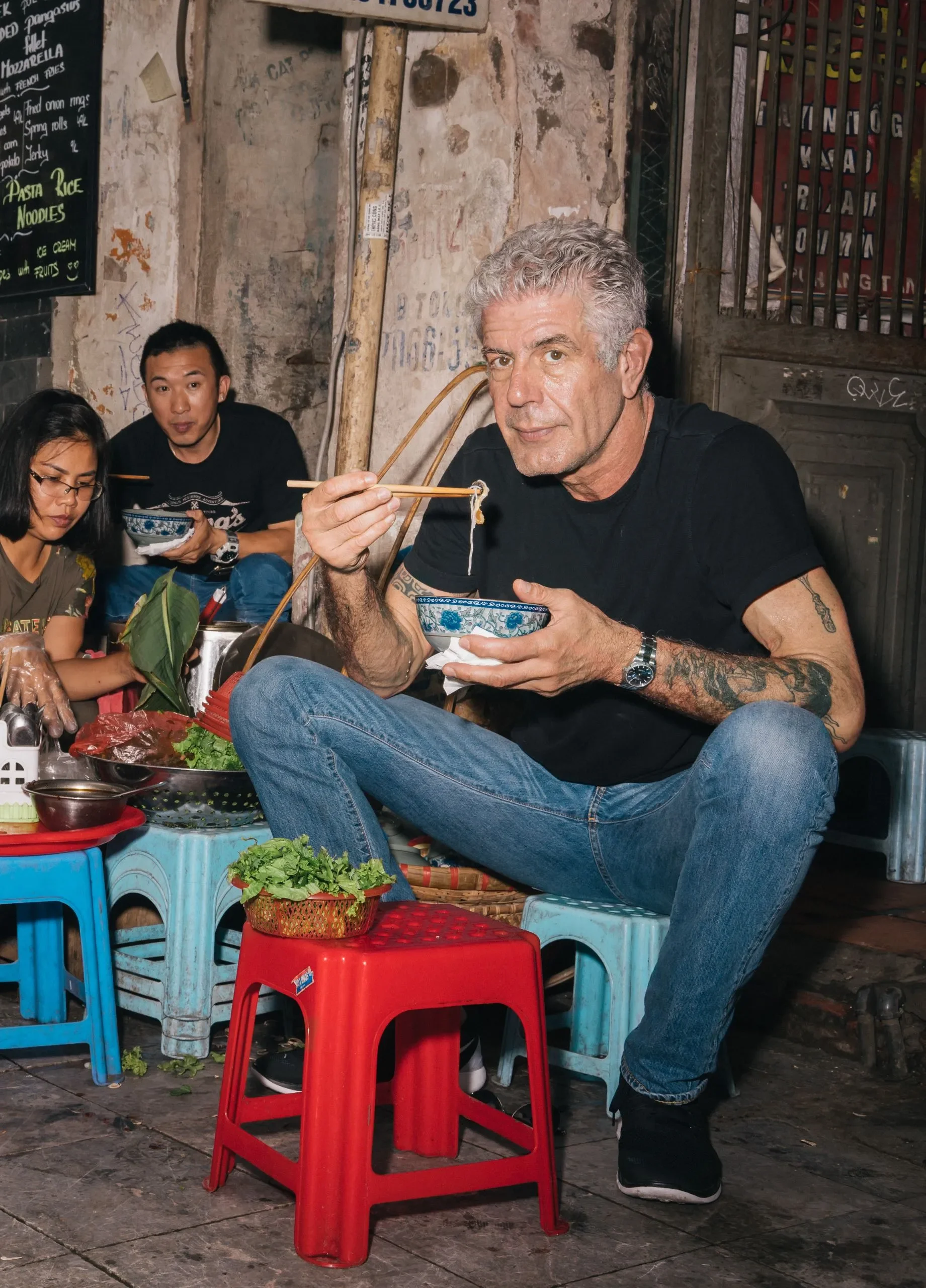The Legacy of Anthony Bourdain and His Death
Source: The New Yorker
“I love the restaurant business. Hell, I'm still in the restaurant business.” These lines open American chef and author Anthony Bourdain’s 2000 book Kitchen Confidential, perfectly encapsulating the image of the legendary icon: blunt and irreverent. In that book—and in the decades of television and traveling that followed—Bourdain illuminated the kitchen for the world. His straightforward approach to food cut through culture, politics, and the human experience. Bourdain wasn’t just a talented chef. Or a media personality. He was and remains a symbol.
Born in New York City in 1956, Bourdain studied at the Culinary Institute of America and worked in restaurant kitchens for decades. He got his big break in 1999 when the New Yorker published his essay “Don’t Eat Before Reading This,” a brash exposé of the unglamorous and chaotic life behind the kitchen. It became the foundation for Kitchen Confidential, Bourdain’s memoir that blended dark humor, hard truths, and his culinary obsession. It was a runaway success, propelling Bourdain from chef to cultural figure.
Bourdain’s success in the writing world carried onto television. With A Cook’s Tour, No Reservations, and later Parts Unknown, Bourdain employed food for deep storytelling. He ate grilled warthog rectum with Namibian tribesmen, slurped noodles in Hanoi with President Barack Obama, and explored the political tensions of Beirut in the middle of an armed conflict. These were lived experiences, often messy and unpredictable. What stood out in his shows was his bluntness and lack of scripted polish, contrasting starkly with the perfectionist tendencies of most travel shows. For more than a decade, Bourdain’s travels captivated audiences and expanded the way food could be seen on screen. But in 2018, the journey ended in a way that stunned the world.
On June 8, 2018, Bourdain was found dead in his hotel room in Kaysersberg, France, while filming an episode of Parts Unknown. He was 61. His friend and fellow chef Éric Ripert, who had been traveling with him, went to check when Bourdain missed breakfast. The official cause of suicide by hanging—no narcotics or medications.
His death was the result of a complex mix of personal, emotional, and professional pressures. Longstanding battles with depression, the isolation and exhaustion of constant travel, relationship turmoil in the weeks before his death—Bourdain’s death was the culmination of many intersecting struggles, much of which remained invisible to the public.
The news utterly shocked the world. Outside Brasserie Les Halles in New York, where Bourdain had once led the kitchen, fans and fellow chefs left flowers, handwritten notes, and knives tied with black ribbons. Public figures like Barack Obama and José Andrés paid tribute, recalling not only his curiosity and humor but also his ability to bridge divides over the shared love for food.
Bourdain’s death sparked grief, but also a reckoning. It forced conversations about depression, burnout, and the hidden toll of constant travel in high-pressure industries like media. The 2021 documentary Roadrunner and Laurie Woolever’s Bourdain: The Definitive Oral Biography later shed light on the personal and emotional strains of his final years.
In the years since, Bourdain’s spirit has continued to live. Éric Ripert and José Andrés created Bourdain Day on June 25, encouraging fans to remember him. The Culinary Institute of America established the Anthony Bourdain Legacy Scholarship, funding students’ culinary travel like a passport for cross-cultural exchanges, which Bourdain championed. It’s a legacy that mirrors the unapologetic way he lived: “I travel around the world, eat a lot of shit, and basically do whatever the fuck I want.”

